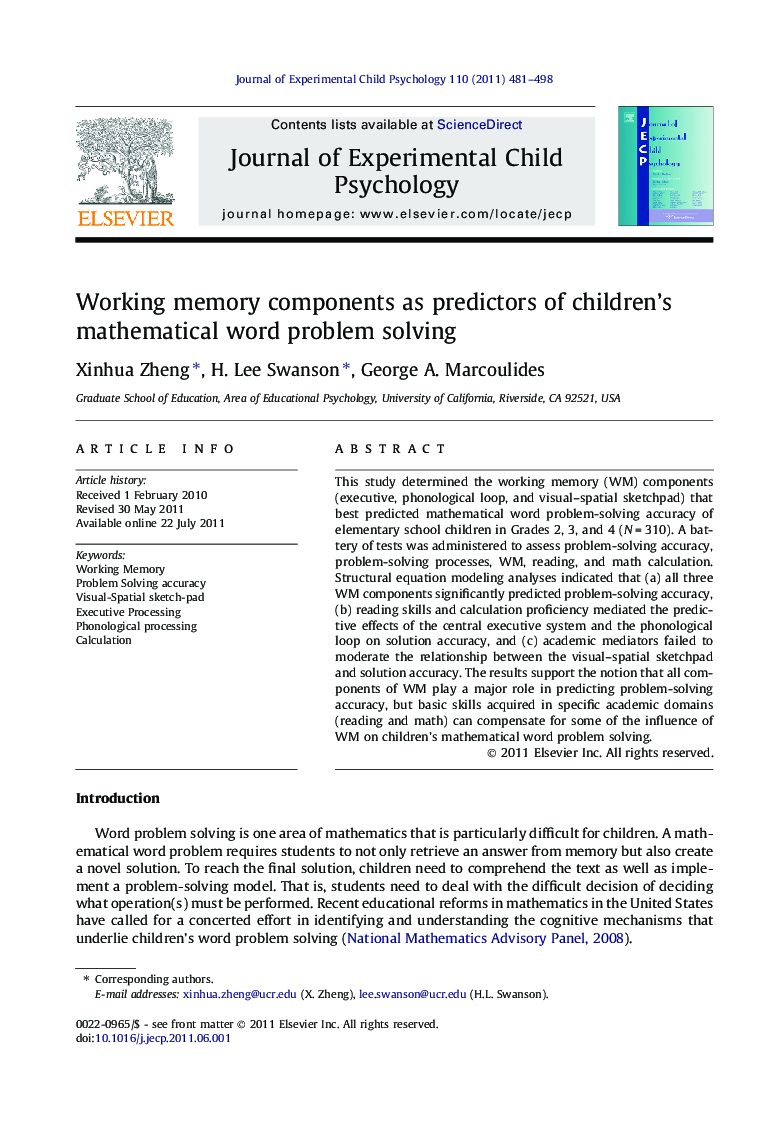| Article ID | Journal | Published Year | Pages | File Type |
|---|---|---|---|---|
| 918353 | Journal of Experimental Child Psychology | 2011 | 18 Pages |
This study determined the working memory (WM) components (executive, phonological loop, and visual–spatial sketchpad) that best predicted mathematical word problem-solving accuracy of elementary school children in Grades 2, 3, and 4 (N = 310). A battery of tests was administered to assess problem-solving accuracy, problem-solving processes, WM, reading, and math calculation. Structural equation modeling analyses indicated that (a) all three WM components significantly predicted problem-solving accuracy, (b) reading skills and calculation proficiency mediated the predictive effects of the central executive system and the phonological loop on solution accuracy, and (c) academic mediators failed to moderate the relationship between the visual–spatial sketchpad and solution accuracy. The results support the notion that all components of WM play a major role in predicting problem-solving accuracy, but basic skills acquired in specific academic domains (reading and math) can compensate for some of the influence of WM on children’s mathematical word problem solving.
► Supports Baddeley’s memory model. ► Predicts problem solving. ► Skills compensate.
